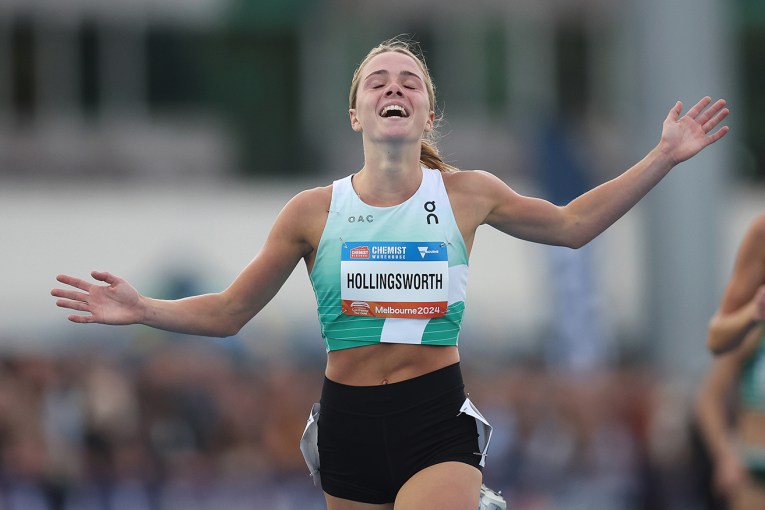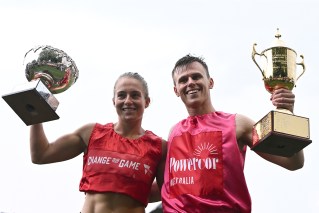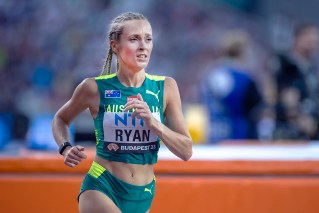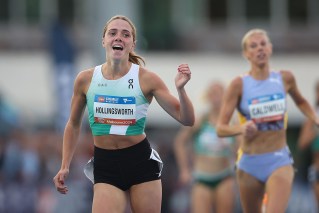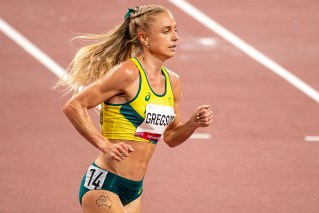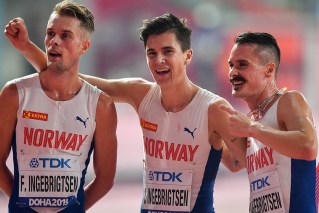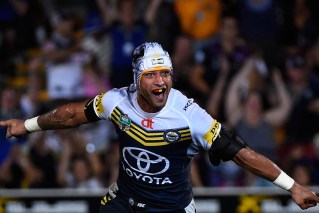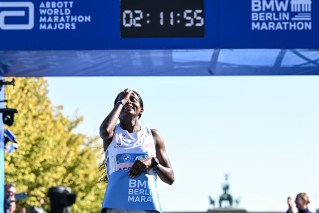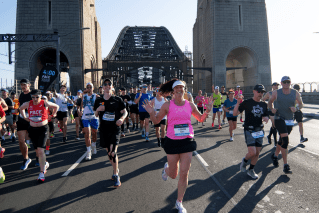Australian athletics’ odd couple prepare for Rio Olympics
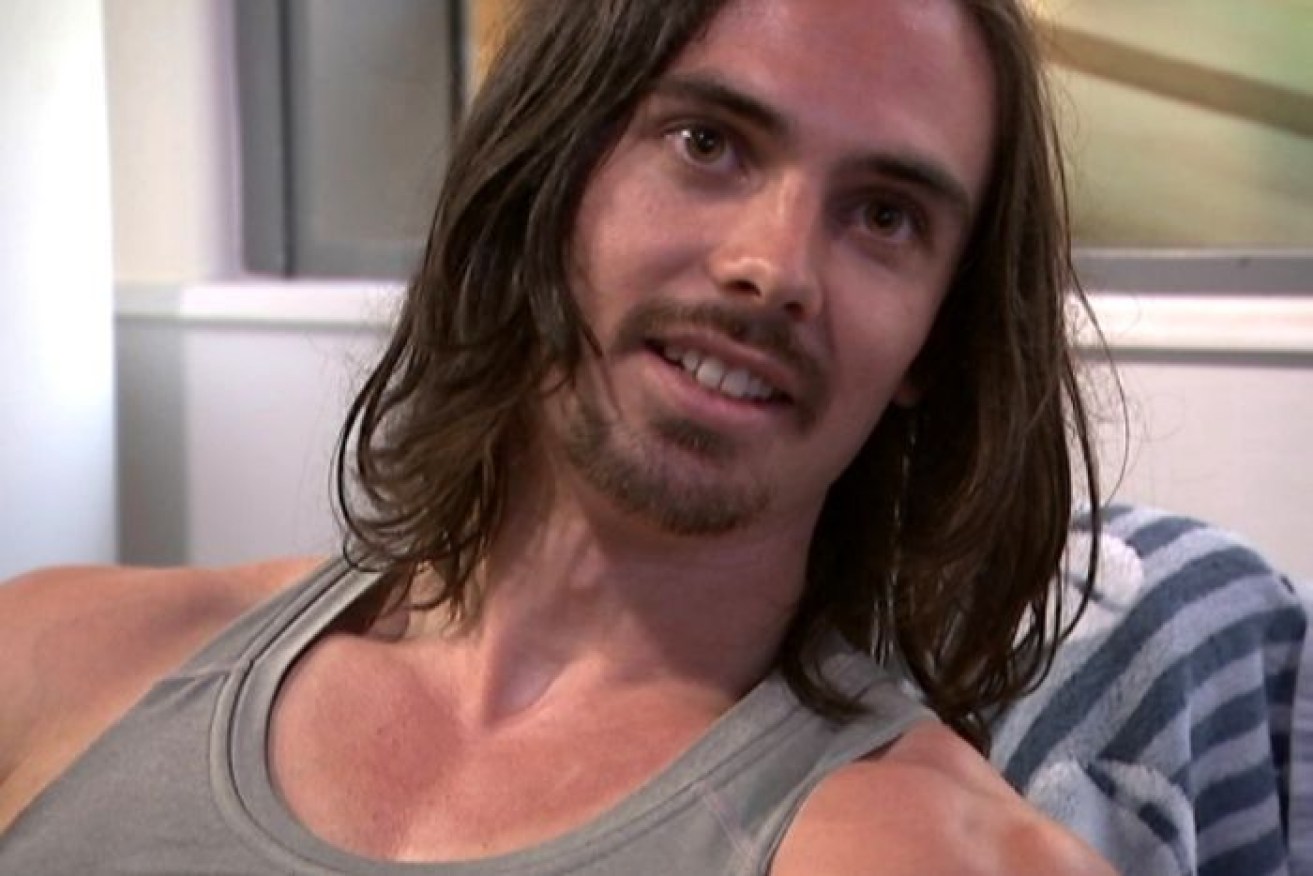
Clarke was one of the first athletes officially named in the team for Rio. Photo: ABC
When Australia’s track and field team takes to Rio’s Olympic stadium in August, it will include a runner in the men’s 100-metre race for the first time since the Athens Games in 2004.
Josh Clarke is Australia’s fastest man.
He has only been running seriously for five years and has one person to thank for his meteoric rise in the sport – his 81-year-old coach Nancy Atterton.
• Sally Pearson can pull off ‘miracle gold’: coach
• Aussie Brooke jumps into Rio medal contention
• IOC: reform in sport is more needed than ever
“I wouldn’t be here if it wasn’t for her,” Clarke said.
“Her experience is second to none and she’s shown me what it takes to get to this level.”
Few people have lived a life in sprinting quite like Atterton – who, in 1954, won an Empire Games gold medal in the relay team anchored by Marjorie Jackson.
Ironically, it was her failure in her individual event at those Games that drove her career in coaching.
“I think that was the greatest experience,” she said.
“I came away from there understanding exactly what had gone wrong, what I needed to do to run better and, as a coach, I think the athletes have gained the benefit of my experience of ’54.”
He’s got a Ferrari engine but a Holden chassis
Six decades on, she is still passing on that experience at the Sydney high school where she first met Clarke.
“He was just another little kid from year seven,” she said.
But when she first saw the boy running on a track, she knew she had a talent on her hands.
“When I saw him sprint I knew I had something,” she said.
“And he’s always done it effortlessly, that’s why I know there’s more there. He’s an enormous talent.”

Nancy Atterton competed at the Empire Games in 1954. Photo: ABC
It has taken a lot of work to get him to where he is now.
“He’s got a Ferrari engine but I’ve always said he’s got a Holden chassis,” Nancy said.
“Now he’s developing that chassis up to be as strong as the equipment that he’s got.”
This domestic season was a breakthrough year for Clarke, culminating in a personal best in Canberra in February where he ran a 10.15-second race, just inside the Olympic qualifying time and the fifth-fastest time ever recorded by an Australian.
Strangely enough, the run that got him a ticket to Rio was disappointing to Atterton.
“Funny, because I’ve got an eye for technique, I was disappointed with that run because he ran down,” she said.
“It’s the worst run I’ve seen him do for a long time … so that’s what makes me believe there’s more there.”
Clarke is realistic about how competitive his personal best time would be on the world stage.
“There’s no question I’m still a fair way off the top and to medal these days you’ve got to be running at least 9.7 seconds,” he said.
“But I’m still young, I’m still developing and as long as I’m getting closer to that 10-second barrier, I’m there or thereabouts.”
On Sunday night at a gala dinner in Sydney, Clarke was one of the 28 initial athletes to be officially named in the team for Rio.
“It’s a good feeling. It probably hasn’t sunk in yet but it’s just good for the family and Nance,” he said.
“All the hard work that they’ve put in, a bit of recognition, yeah it’s a good feeling.”
–ABC
